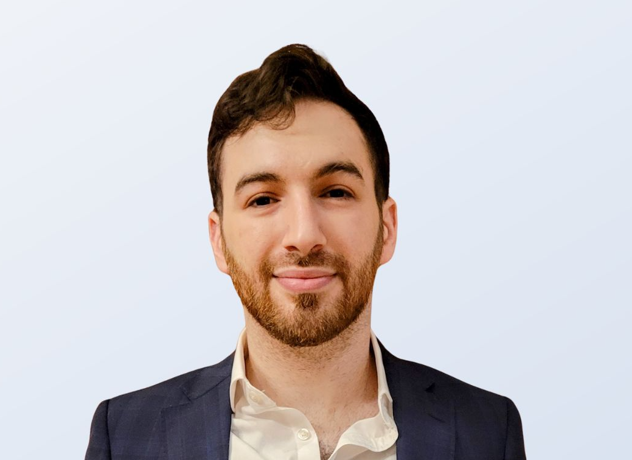Building Human Capital at Deloitte
Touro Alum Helps Employees Grow and Organizations Thrive as an I-O Psychologist

Chaim Feldman, MSIOP, SHRM-CP, a Touro School of Health Sciences (SHS) alum who is now a successful I-O psychologist at Deloitte GPS, talks about why he chose the field and offers practical advice for anyone interested in this growing and gratifying profession.
I-O psychologists play an important role in the workplace. They help management and employees work more efficiently together and ensure overall employee satisfaction. They focus on optimizing organizations by improving key areas such as talent acquisition, retention, training, leadership development, employee development, and organizational change. The main goal is to enhance both employee well-being and overall organizational performance.
For Chaim Feldman, who always held an interest in psychology, discovering I-O was life-changing, propelling him toward a career in the business world while still having an impact and making a difference in people’s lives.
Can you share your career journey post-graduation from Crown Field Services to Accenture and now, Deloitte?
Towards the end of my graduate program at Touro, I was in the market for a full-time HR position. I was lucky enough to find that opportunity with a small company called Crown Field Services. This position allowed me to work closely with a receptive CEO who wanted to improve the “people” side of his small but growing business. During my time with CFS, we surveyed the staff to determine which areas each individual felt the company could improve. Some showed concerns around paid time off (PTO) or health insurance and others were more focused on company efficiency and communication. Throughout my time with the company, I was able to help revamp these pain points allowing people to know their requests were being heard and acted upon. This was a unique launch opportunity for my career in I-O.
After about a year in this role, I became curious about more traditional corporate opportunities in larger organizations and began networking with people both in consulting and corporate HR roles. After learning more about potential opportunities I set my sights on finding a consulting role and landed at Accenture.
When starting in consulting, there’s a learning curve—not just in understanding how the firm operates but also in building the right skills. Consulting requires a certain skillset that is generally learned on the job. Some of these skills include strong problem-solving, clear communication, proactive working style, content creation, and the ability to manage different people and projects. It takes time to get comfortable with these skills, and in many cases, it can take 2-3 years to fully understand how the industry works.
Ultimately, after two years of working with Accenture serving federal clients in the areas of change management and recruitment strategy, I felt it was time to find an opportunity with more than just federal clients. I ultimately ended up working with Deloitte.
In what settings do I-O consultants generally work?
IO Psychologists generally work in HR/People departments in various types of organizations. They also work in human capital consulting, in academics and in various types of research.
What is a day on the job like as a Human Capital Consultant at Deloitte?
In consulting, everything is project dependent. But to give a glimpse, some daily tasks might include meeting with clients or project teams, delivering change management solutions for major initiatives such as technology implementations, and preparing project reports or client workshops. We also work on FAQs about upcoming changes, workforce sentiment surveys, training guides and other communications materials, as needed.
What do you love most about the field?
The opportunity to focus on people’s effectiveness at work is what I love most. It is incredibly rewarding to design solutions with the end goal being productivity for both the people and the organization.
What type of skills and strengths are needed to succeed in I-O psychology?
IO psychology is a broad field so there are opportunities to use and specialize in different skillsets. For example, one I-O may be more focused on the assessment space and continue to hone their data analysis and research skillset. Others may focus on their communications and training skillset and continue to stay up to date on the latest change management techniques. All successful I-Os should have a mix of analytical, communication, research, and project management skills.
What is your advice to people looking to enter the field?
Gain practical experience through internships and entry-level HR positions. Make sure to build your network by attending conferences and connecting with other professionals in the field. Try to obtain relevant certifications to show a potential employer you are an expert at an early stage. Lastly, be patient. This is something I remind myself of quite often. It takes time to really gain an understanding of this field. Both from a materials perspective and then the practical application of it, too. Those first five years set the foundation for your career. Do not rush to be an expert, keep learning.

